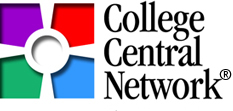Services and Programs
Overview of the Career Development Process
Career Services is dedicated to helping you make informed decisions about your career choices. The career development and exploration process can be complex and overwhelming, especially with all of the transitions you will encounter during your college career. However, the process can be simplified into five basic areas:
- Assessing yourself
- Exploring options
- Making a decision
- Taking action
- Evaluating your decision
It is important to realize that this process is ongoing and you may find yourself going back and forth through these stages throughout your entire life!
Assessing Yourself
Assessing your interests, values, skills, personality and motivation helps you to answer the critical question of “who am I?” Assessments can be done through both a formal process such as career assessment inventories as well as an informal process through individual career counseling. During this stage, you may consider asking yourself and exploring:
- What’s important to me? (values)
- What do I like to do in my free time? (interests)
- What activities make me lose track of time? (interests)
- What are the most interesting jobs and careers that I can think of?
- If I could do anything in this world and money was no object, what would I do?
- What skills and activities come naturally to me? (skills)
Exploring Options
After you have accessed your interests, values and skills, there are many different ways in which you can explore career options that relate well to you. Some ways in which you can learn more about different types of careers include the following Online and print publications:
Online and print publications
- Occupational Outlook Handbook
- O*Net OnLine
- MyPlan.com
- Riley Guide
- Job Hunters Bible
- The Art Career Project
- Career Coach Website
- Kuder Journey (Contact Career Services for Access Code)
Making a Decision
Once you have explored your interests and have more knowledge about your own interests and values as they relate to majors, you can make a decision about your major and career goals . At this stage, it is important to understand how you will evaluate your exploration experiences and how you will make your decision, including narrowing down career and major options. Some critical questions to ask yourself may include:
- Have I fully considered, to the best of my ability, all of my interests, values, and skills?
- Have I gathered enough information to make an informed and comfortable decision?
- What are the top three careers for me?
- What are the pros and cons for each career?
Talk with an advisor or career counselor who can help you evaluate the information you have collected, suggest additional resources, and guide you through the decision-making process.
Taking Action
This is the stage where you will take action to make sure that you are heading on the right path towards your career. You may be ready to choose or clarify your major, if you have not already done so. You will also begin to develop a career action plan that will help you focus your energy on what steps you will need to take to reach your goals. Some questions to ask yourself include:
- What majors are most relevant to my career goals?
- What skills are necessary in the fields I have chosen?
- How do I gain the necessary skills to be marketable to employers upon graduation?
Evaluating Your Decision
You may find it necessary to review and evaluate your career decisions on a regular basis to ensure that they are still compatible with your priorities, interests, and values. There may be times you may find yourself beginning and repeating various stages of the career development process over and over again. Your priorities, interests, and values will shift over time which will affect how you view the world of work and your career choices.
Important Facts to Remember
- Career development is a proactive process – NOT an event
- Choosing a major in college does not pre-determine your entire professional career- there are lots of career paths that you will have the opportunity to explore
- Choosing a major in college does not mean that you have to give up your other areas of interest – find extracurricular activities to supplement your other interests
- Your priorities, interests and skills will shift over time
- Career development and decision making takes time
- When developing your career action plan, keep your end goals in mind- determine what path you may want to pursue whether it is a career, continuing your education at a four-year institution, or volunteer/service after graduation
- ALL of your experiences, whether they are job-related or not, impact your career choices
- Keep an open mind and take advantage of opportunities that present themselves
- No one career could possibly meet ALL of your needs – choose the best fit career option for you
Learn About Yourself and Career Fields
Our career assessments can help you discover which careers are right for you. Increase your self-awareness and choose a great career! Contact the Career Services Advisor at your campus and register to take the Kuder Journey Assessments. These valuable tools will assist you as you learn about yourself and the world of work. There is no charge for this service. Once you register with this system, you will have unlimited access to a variety of tools and resources which will take you through the career development process all the way to finding a job in your chosen career field. What are you waiting for?
This site provides information using PDF, visit this link to download the Adobe Acrobat Reader DC software.

